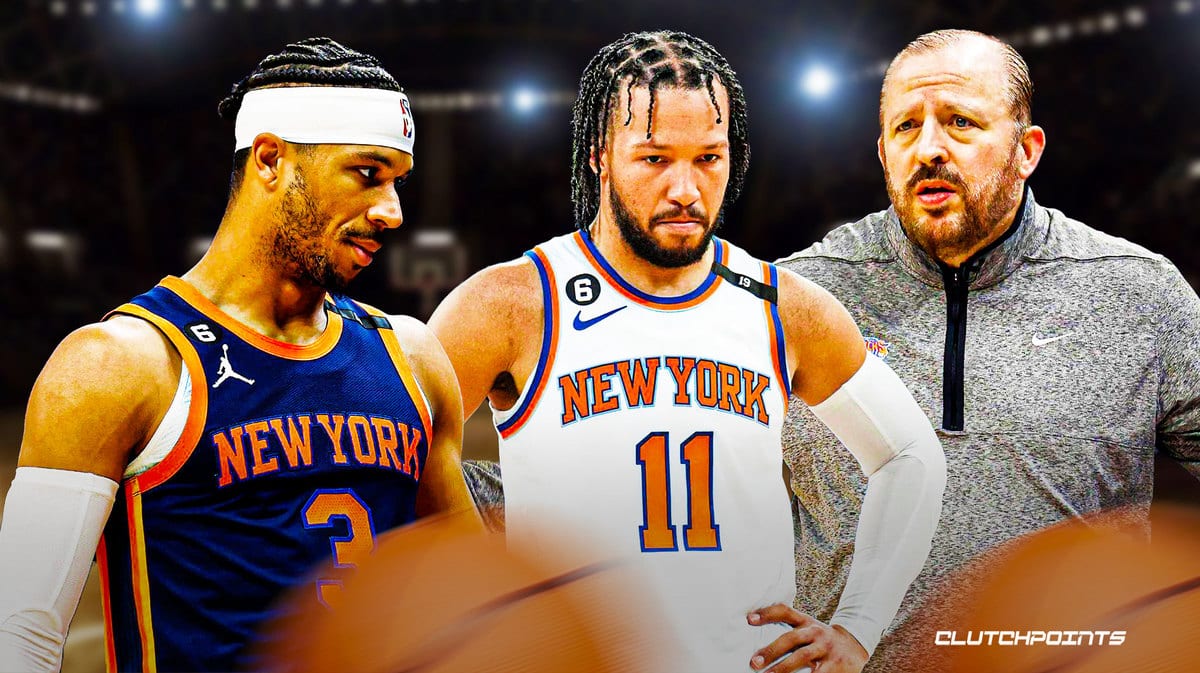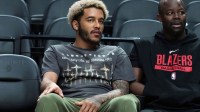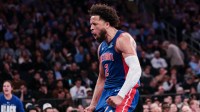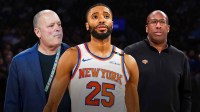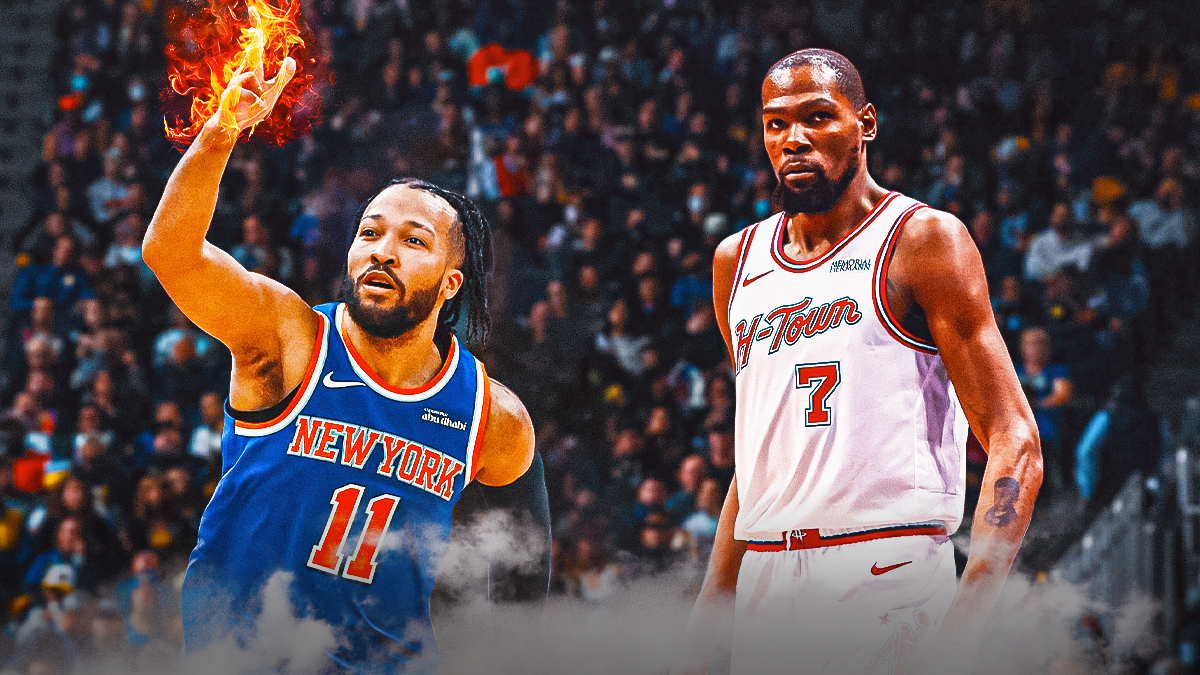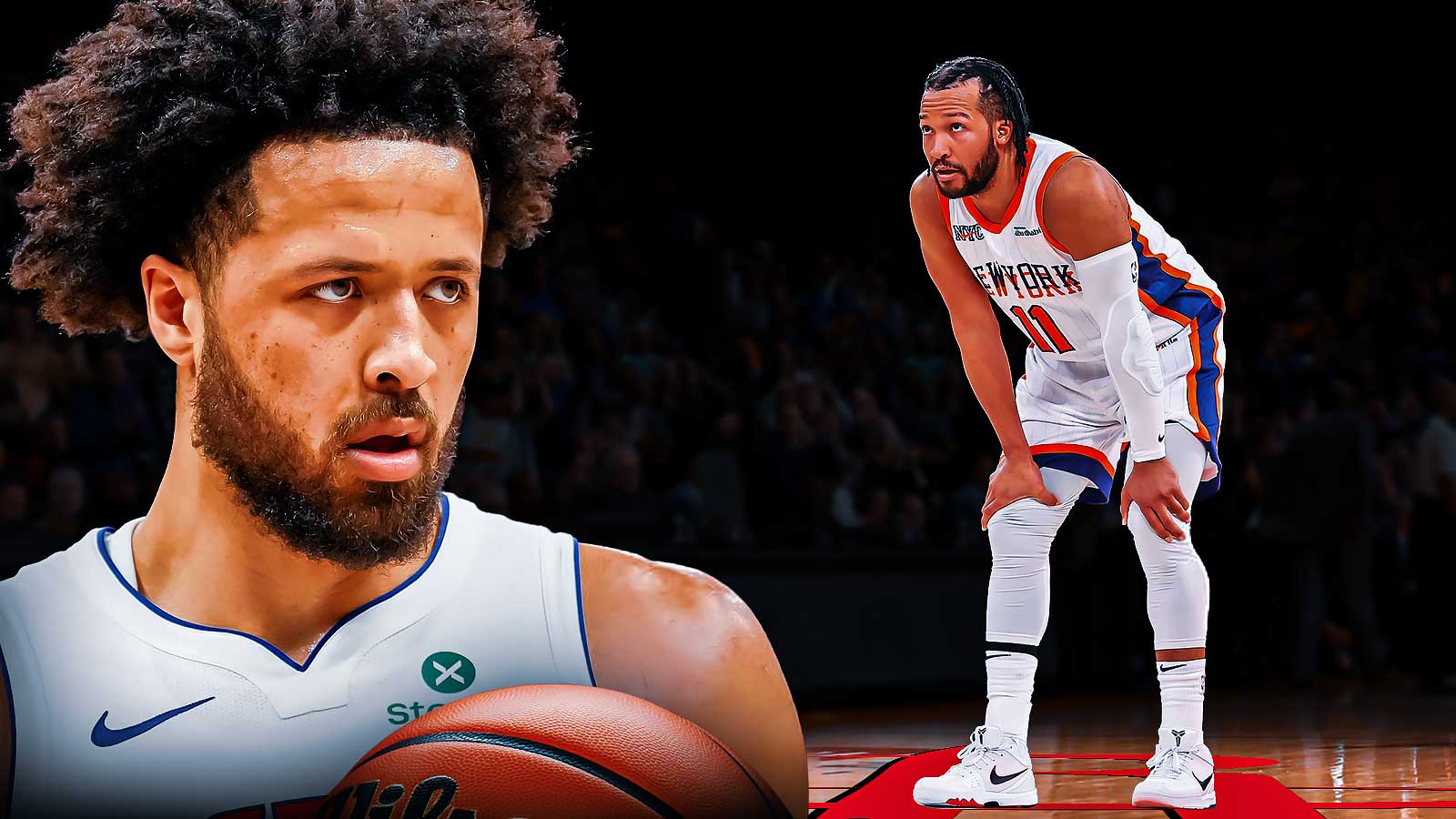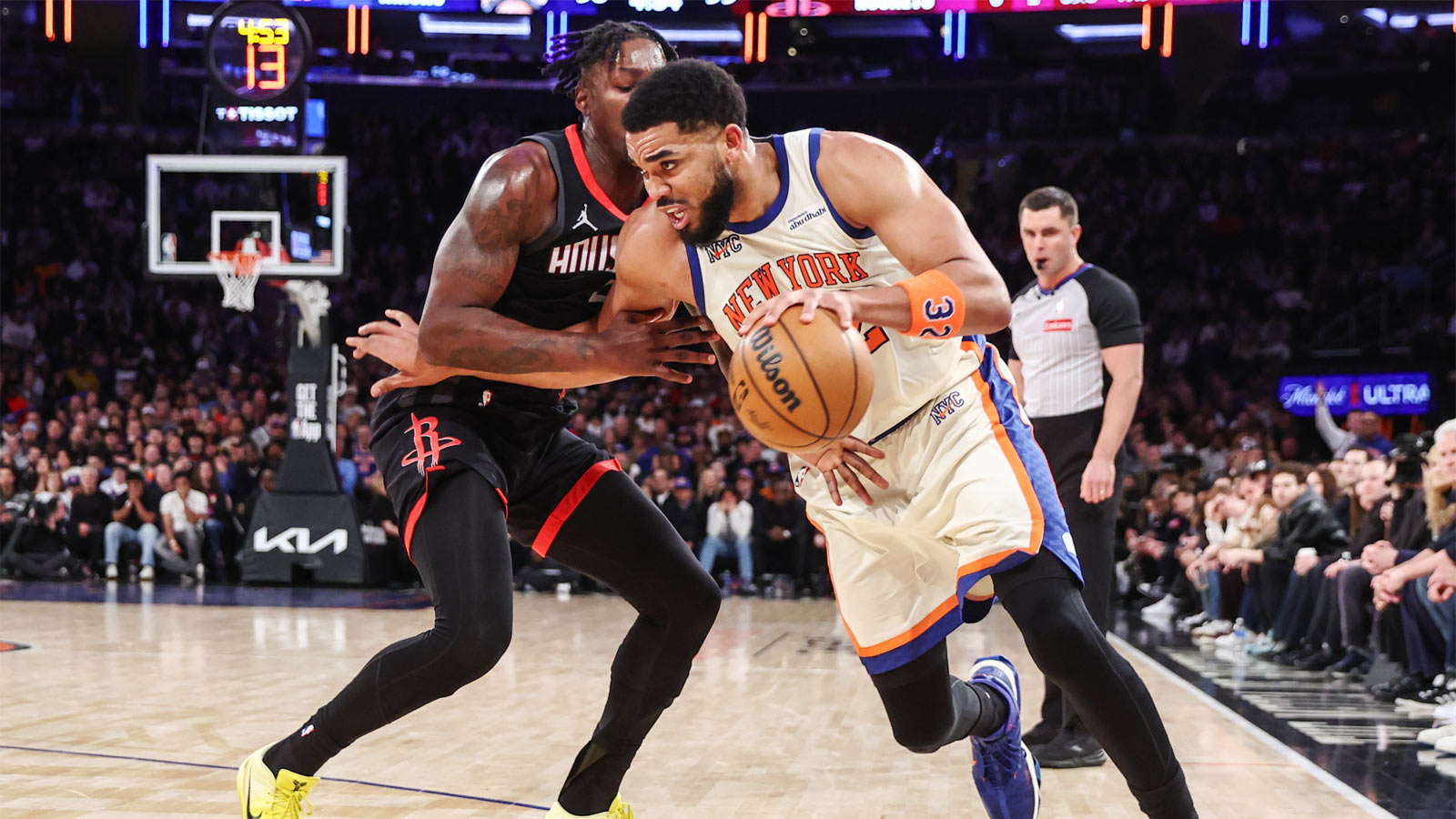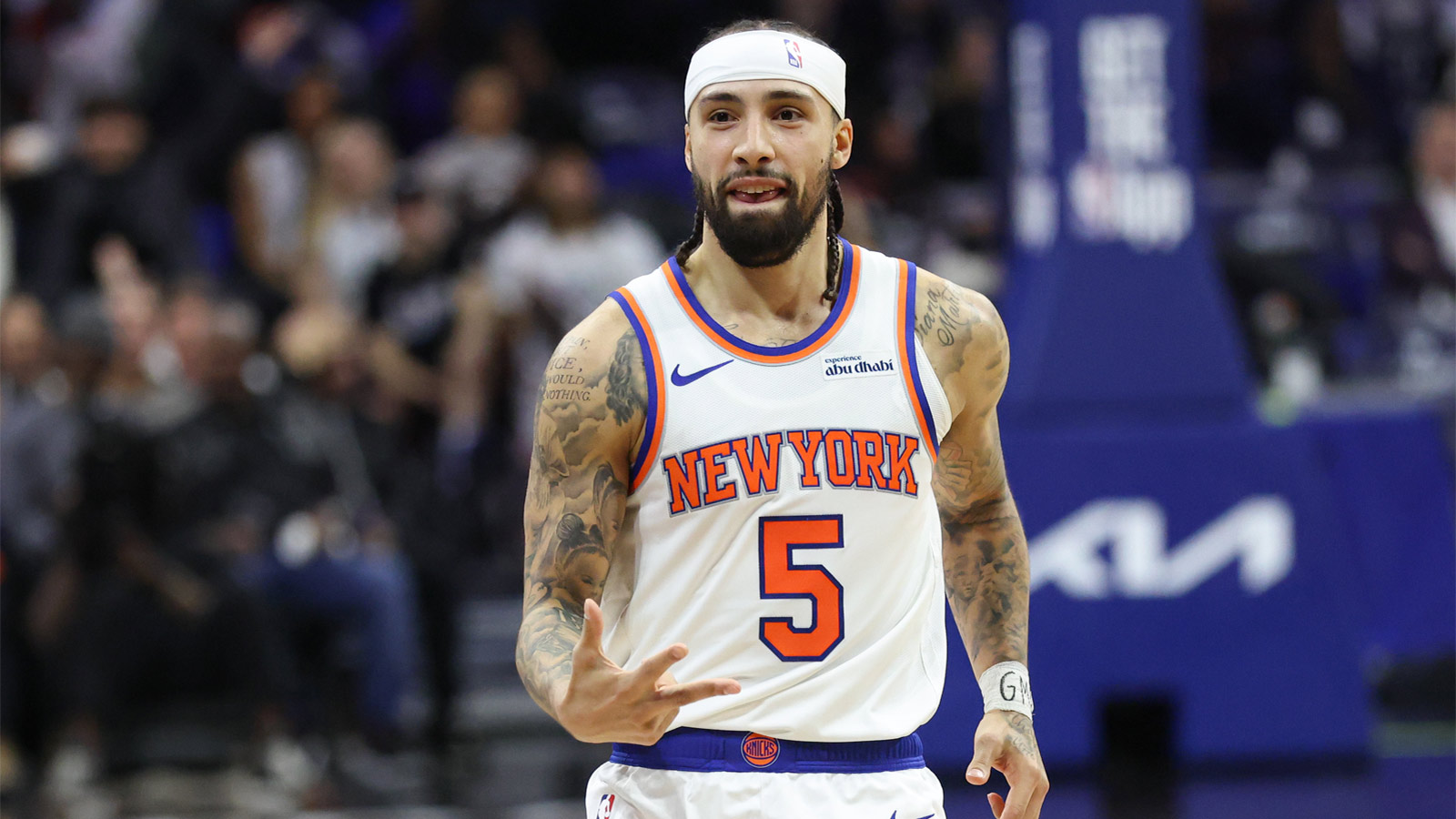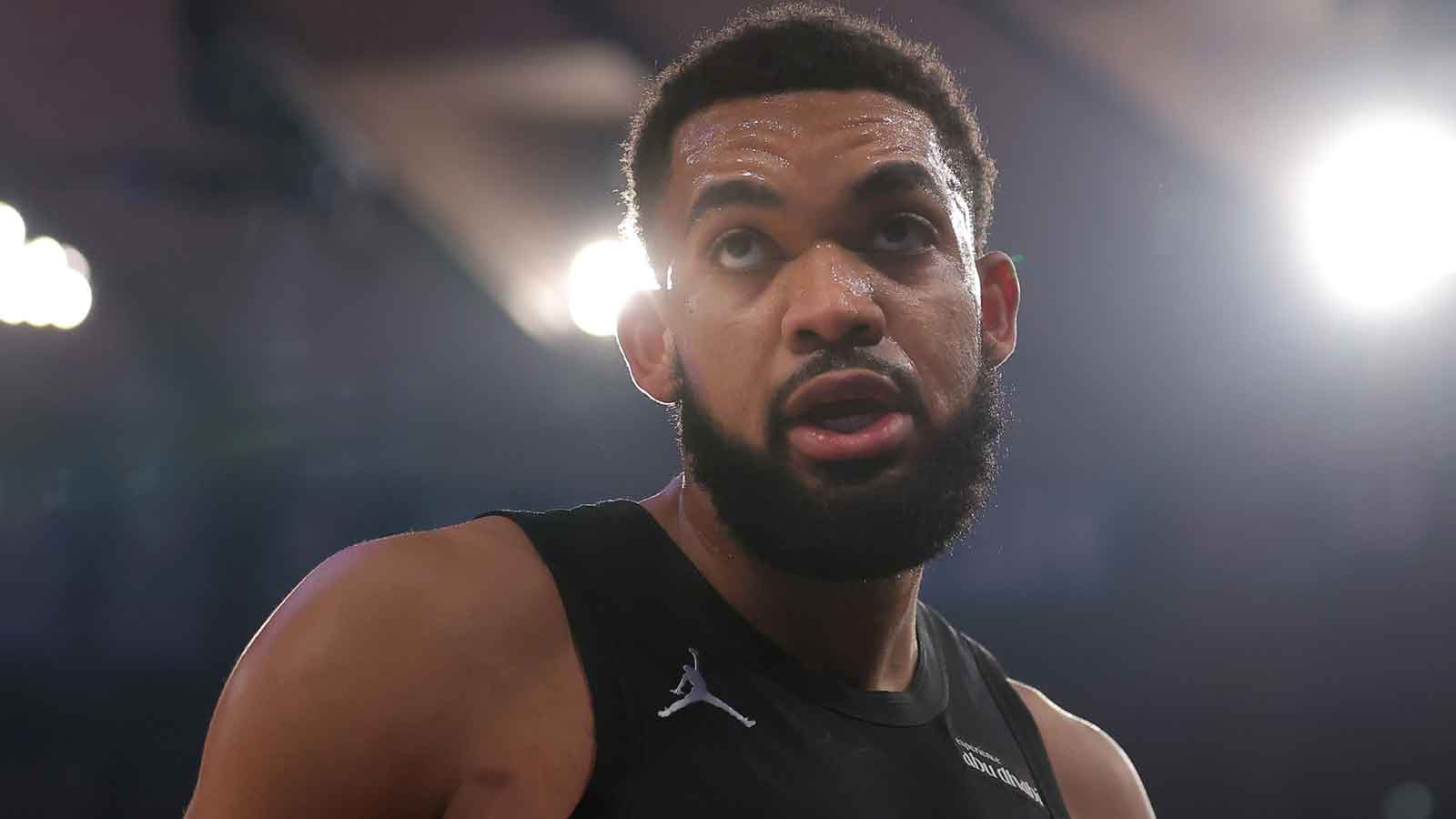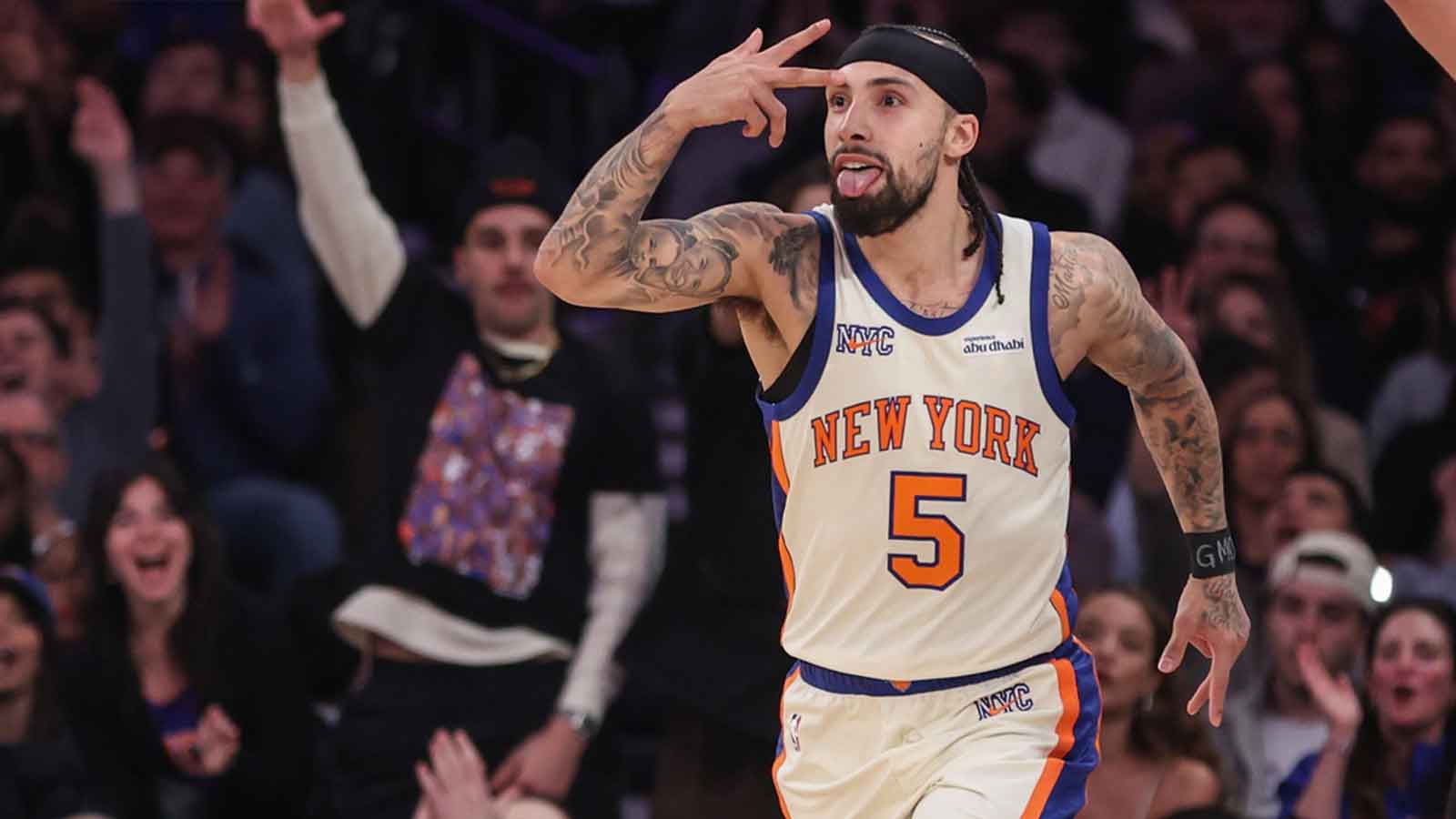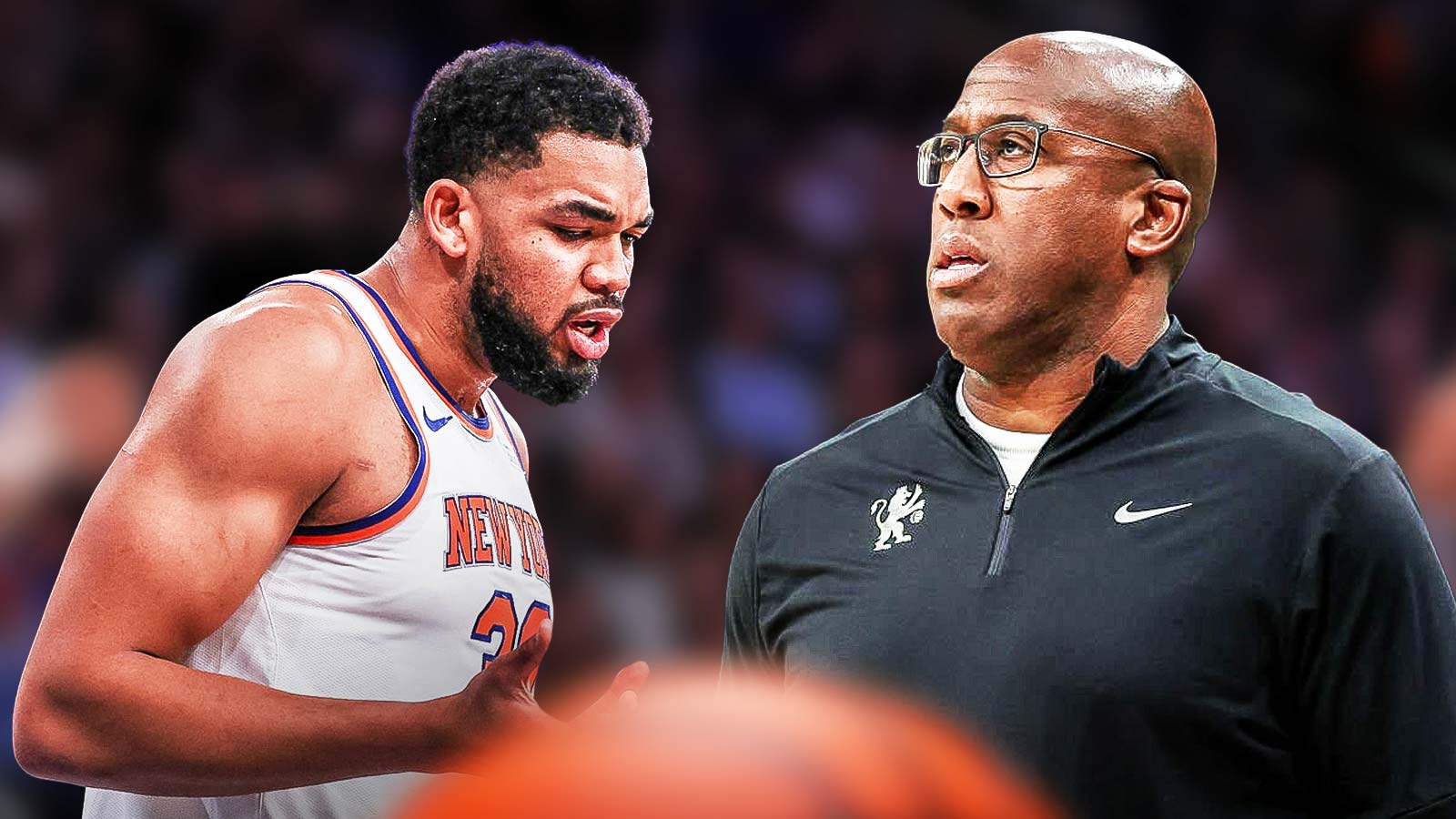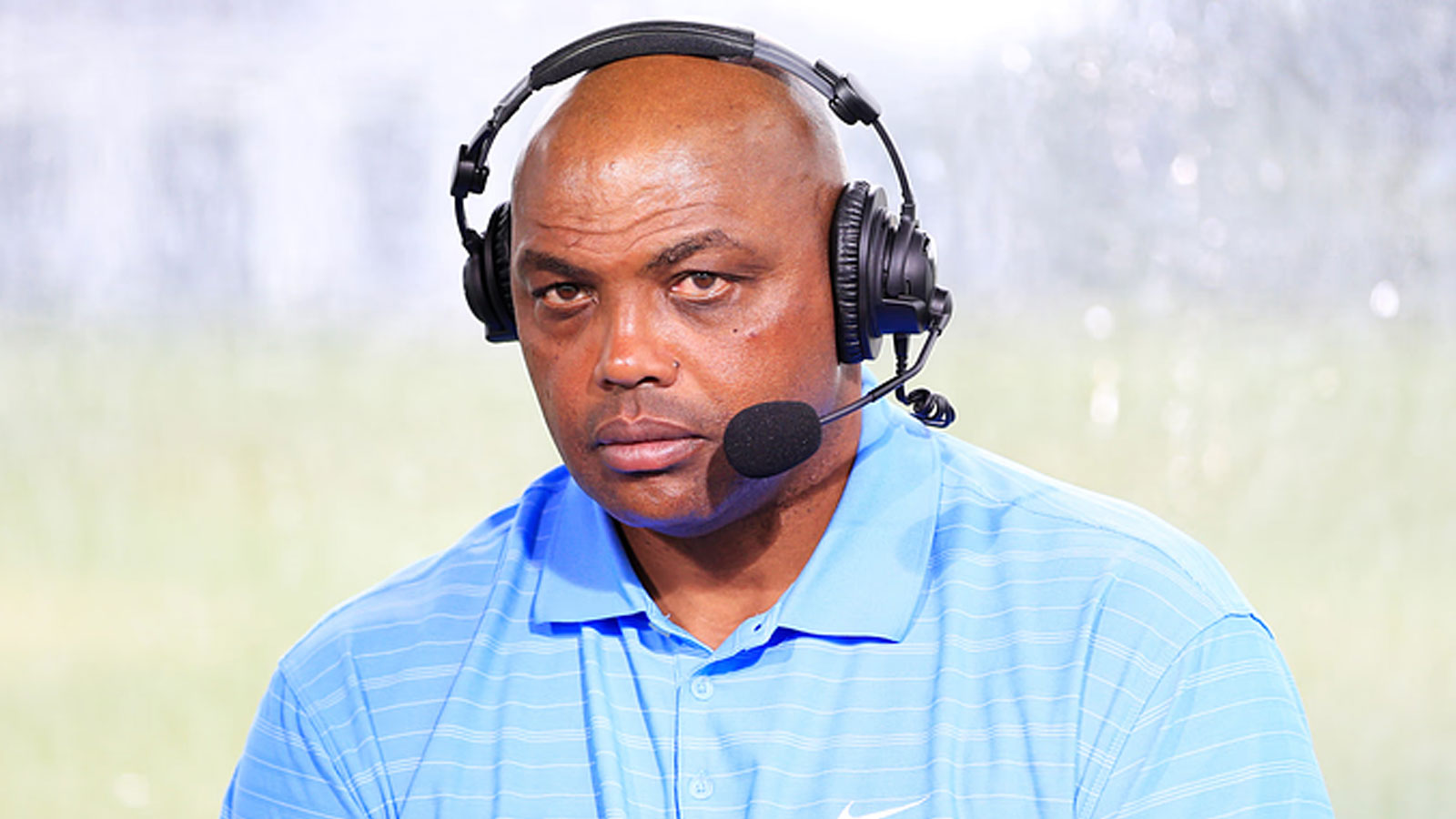The New York Knicks don't play pretty basketball. At their best, they display a brutal economy, kludging together a shockingly elite offense through by running up big rebounding and turnover margins and winning the possession battle. At their worst, it's just plain gross. Against their opener against the Miami Heat in the second round of the NBA Playoffs, the Knicks were arguably grosser than they've ever been. Absent Julius Randle, the Knicks offense was inert and harmless without the perimeter shooting or skill to unsettle the Heat in any meaningful way. In their 108-101 loss to the Heat, the Knicks shot a ghastly 7-34 from three and 60 percent from the free throw line; if the Knicks merely shot like a normal, bad NBA team rather than a fan called onto the court for a Spirit Airlines-sponsored shooting contest, they probably win the game fairly easily. As such, here are the three Knicks most responsible for their loss as the Knicks face their first series deficit of the playoffs.
Jalen Brunson
For what it's worth, Brunson had a pretty good game. Carrying the Knicks for large portions of the game, Brunson racked up 25 points (on 11-23 shooting), five rebounds and seven assists. Still, he failed to make even one of his seven three-pointers and he turned the ball over five times, repeatedly getting stripped by Kyle Lowry and Jimmy Butler on his way to the basket.
“I was horrific,” he vented in his post-game press conference. “Very uncharacteristic by me, and this one's on me.”
This might not be totally true, but who are we to argue with the man himself?
Josh Hart
In first three months in New York, Hart was nearly flawless in his role; his grit and doggedness essentially “breaks” teams. He plays an idiosyncratic, oddly shaped style as perhaps the only guard in the league whose greatest strength is his rebounding. While the Knicks have largely been able to accommodate his shaky shooting because of his many other strengths, the Heat turned him into a liability. In this sense, the Heat are a nightmare matchup for the 28 year old wing—Hart has made his bones by outworking and out-thinking the opposition, but the Heat are impossible to outwork or outthink.
Accordingly, outside of a handful of signature transition rampages, Hart was a hindrance—the Heat didn't respect his shooting, ignoring him until he broached the paint. Hart couldn't punish them, going 0-4 from deep. More concerning, Hart's stinker wasn't merely an off game; rather, it revealed a major structural flaw.When Hart shares the court with RJ Barrett (who, for what it's worth, was brilliant in Game 1), the Knicks simply don't have enough shooting. As such, Hart faces bigger challenges than simply making shots; he has to find new ways of existing on the court and fitting within injury-plagued, novel new lineups.
Tom Thibodeau
Despite his reputation as a rigid, unyielding coach, Thibodeau has mostly made pitch-perfect adjustments for the Knicks in the playoffs so far. Against Cleveland, Thibodeau dialed up new offensive and defensive tactics from game to game, insulating his team's weaknesses and poking at the Cavs'. Conversely, he was slow to adapt on Sunday as the Heat compensated for their talent deficit by playing smart, precise basketball. They neutered the Knicks offensive rebounding by leaking out in transitioning, forcing the Knicks to recalculate the costs and benefits of crashing the glass if it meant sacrificing easy fast break chances; they carved out minutes for Duncan Robinson and Kevin Love, betting that the Knicks lacked the patience and cleverness to hunt them on defense. These were risky moves. There's a world where the Knicks demolished them on the offensive glass and chased Love and Robinson off the court, but it was a world that Thibodeau couldn't guide them towards.
More galling, the Knicks couldn't capitalize once Jimmy Butler got injured midway through the fourth quarter. Although Butler stayed in the game after seemingly spraining his ankle, he was unable to move; his sole post-injury contribution was airballing a corner 3. Bafflingly, the Knicks let him off the hook; they showed Butler more deference when he was a decoy on one leg than when he was a menace on two. RJ Barrett was aggressive all game long and led the Knicks with 27 points, yet refused to attack an obviously immobile Butler late in the game, instead calling for a screen and allowing Butler to switch away from him. Fortunately, Thibodeau rebounded from a similarly poor showing against Cleveland: the Knicks responded to getting blitzed in Game 2 by shoring up their game plan to slow down Donovan Mitchell and Darius Garland and peeled off three straight games to take the series in five games as a result.

